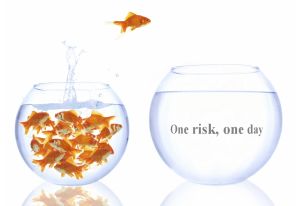Understanding Japanese
 Getting confused while speaking, taking back what you said, bouncing back and forth by changing words... These are the common traits of people who are really trying to express what they think. People who speak out their opinion smoothly like a flowing river are undoubtly voicing someone else's opinion. The tragedy of communicating with these people is that they're determined to stick with their opinion. It is non-negotiable so cannot be resolved though communication. If you cannot (or are not willing) to change your mind, it is because the opinion itself did not come out of you.
Getting confused while speaking, taking back what you said, bouncing back and forth by changing words... These are the common traits of people who are really trying to express what they think. People who speak out their opinion smoothly like a flowing river are undoubtly voicing someone else's opinion. The tragedy of communicating with these people is that they're determined to stick with their opinion. It is non-negotiable so cannot be resolved though communication. If you cannot (or are not willing) to change your mind, it is because the opinion itself did not come out of you.-Tatsuru Uchida
When I was in business school in US, I remember doing this small exercise of pairing up and facing with one of my classmates and see how long we can keep our mounths shut. When I first heard this exercise, I thought it was a joke. I couldn't even understand the meaning of this exercise.
Sep 05 2010,
0 comments

 Masafumi Otsuka’s Blog
Masafumi Otsuka’s Blog When you compete against everyone else, no one wants to help you. But when you compete against yourself, everyone wants to help you.
When you compete against everyone else, no one wants to help you. But when you compete against yourself, everyone wants to help you.

 "If I (or we) didn't invent it, then it's not worth much."
"If I (or we) didn't invent it, then it's not worth much." "If you're not prepared to be wrong, you'll never come up with anything original."
"If you're not prepared to be wrong, you'll never come up with anything original."
 I have been writing a blog in Japanese for four years now, mainly writing about why so many Japanese businesspeople have trouble using English as a communication tool.
I have been writing a blog in Japanese for four years now, mainly writing about why so many Japanese businesspeople have trouble using English as a communication tool.